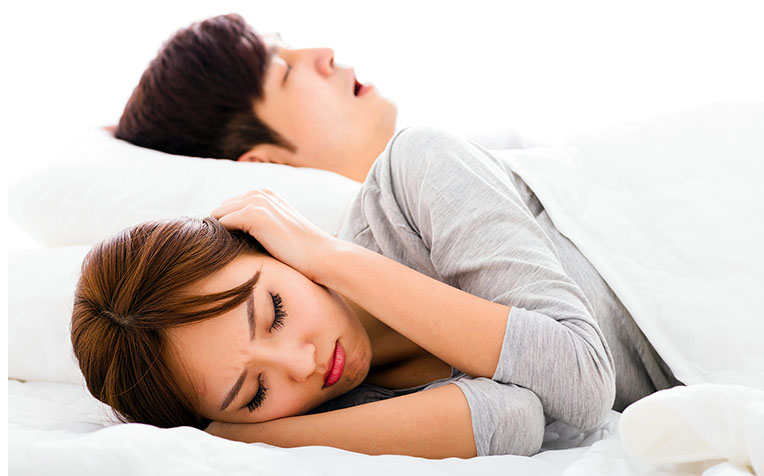
Snoring may be caused by sleep apnea.
What causes snoring?
In most people, snoring is due to multiple factors. When you doze off and progress from light sleep to deep sleep, muscle relaxation can narrow the airway, creating airflow turbulence, and allow the soft tissues in your throat to vibrate. If you sleep on your back, your tongue may fall back and contribute to the airway narrowing and snoring.
Enlarged tonsils can also be a cause of snoring in adults, but that’s more often the case in infants and children.
Other reasons that may cause you to snore include:
Gender and weight. Being male and obese are both risk factors for snoring.
Ageing. As we age, the airway muscles become more lax.
Alcohol and certain medications. Consuming alcohol too close to bedtime can induce over-relaxation and collapse of the throat and tongue muscles.
Nasal and sinus problems. If you have chronic nasal congestion or a crooked nose cartilage (also known as a deviated nasal septum), you are more likely to snore.
Mouth anatomy. A low, thick soft palate can narrow your airway during sleep. Similarly, an elongated uvula (the dangling tissue in the back of your mouth) may obstruct airflow.
Could snoring be a sign of a sleep disorder?
Snoring can be more than just a nuisance for your bed partner. As a habitual snorer, you could be suffering from a potentially serious sleep disorder called obstructive sleep apnea(OSA). This condition, which affects up to 15 per cent of adults in Singapore, is marked by frequent awakenings during the night as the person’s breathing gets interrupted.
Dr Toh Song Tar, Senior Consultant, and Head of the SingHealth Duke-NUS Sleep Centre as well as the Department of Otorhinolaryngology - Head &Neck Surgery, Singapore General Hospital (SGH), a member of the SingHealth group, explains the connection between snoring and sleep apnea.
Snoring and the sleep disorder called sleep apnea
Sleep apnea is a potentially serious sleep disorder where breathing stops many times during sleep. These pauses cut off oxygen supply, forcing you to awaken with a snort as you gasp for air.
A key tell-tale sign is the extreme fatigue and sleepiness experienced the next day – even with sufficient hours of sleep. Other symptoms include depression, irritation, decreased libido and morning headaches.
Read on for risks and treatment associated with sleep apnea.
Ref: R14
Contributed by


















 Get it on Google Play
Get it on Google Play